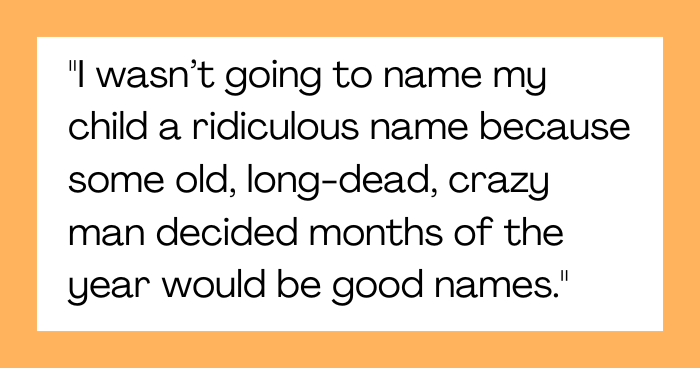Dad Chooses Normal Name for Son, Defying Family Tradition and Angering Grandma
My wife (24F) and I (25M) just welcomed our son, Tobias, and broke the tradition of naming children after months going back five generations. In fact, even OP himself has always hated this tradition, his name, December, made for a lot of mockery and discomfort growing up. His brothers and sisters also have month names including July, August, May, and June and are, to different degrees, socially maladjusted. OP’s family (mostly his mum) had made it known that they wanted a month reference name so once the birth cert was complete, and couldn’t be changed, he decided to keep his and wife’s choice secret.
OP’s parents never forgave him for his disrespectful name and he dropped the name after finding out. His brothers backed his choice after understanding what he went through, while his sisters and parents, the latter of whom accused his wife of having “brainwashed” him, gave him a hard time. The bit that really ramped things up was OP calling it “madness” and then telling his mother she was perpetuating the tradition “for no good reason”, after which everything went downhill and he hadn’t heard from his parents since. OP:wondering if he crossed a line because son’s health more important than keeping the family tradition.
A new dad decided to break the family tradition and name his son “Tobias”

His family expected him to name his baby after a month of the year and got mad when he didn’t
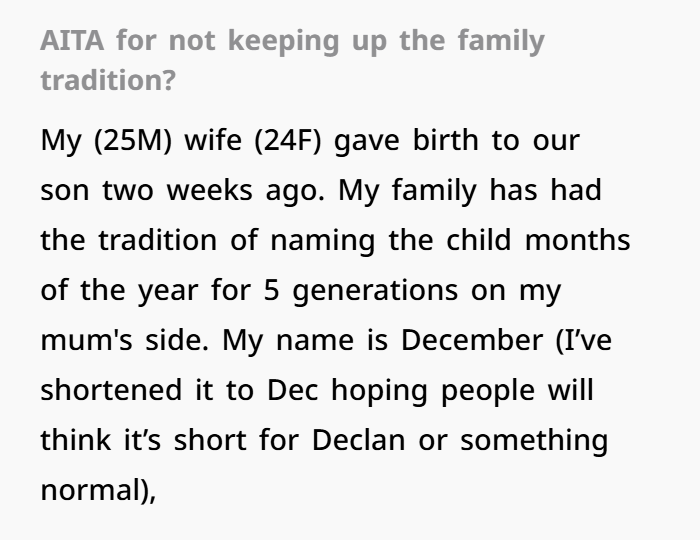
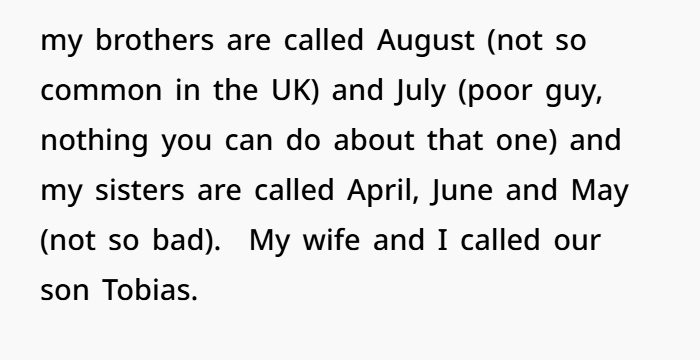
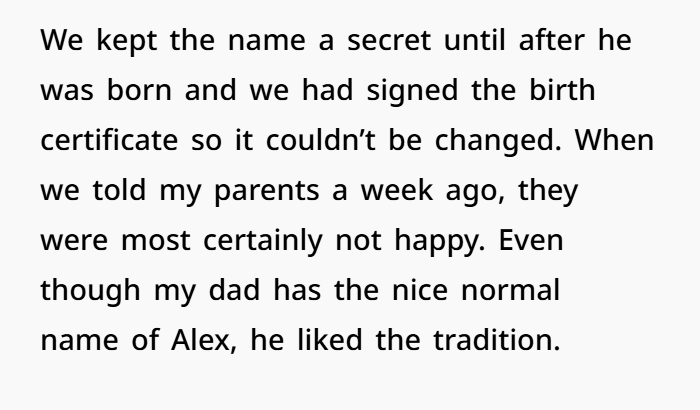
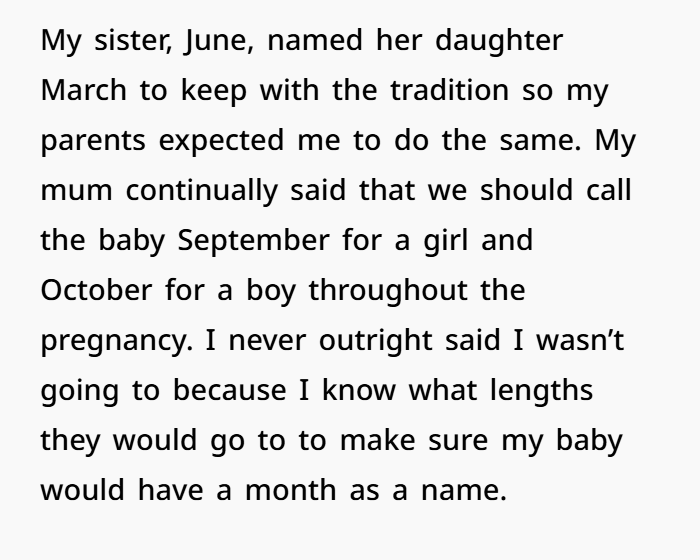
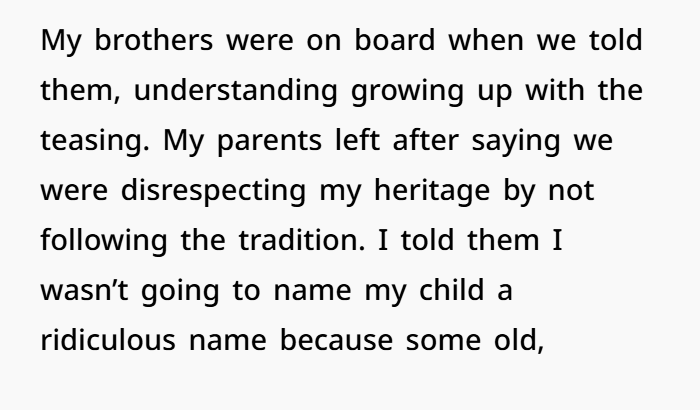

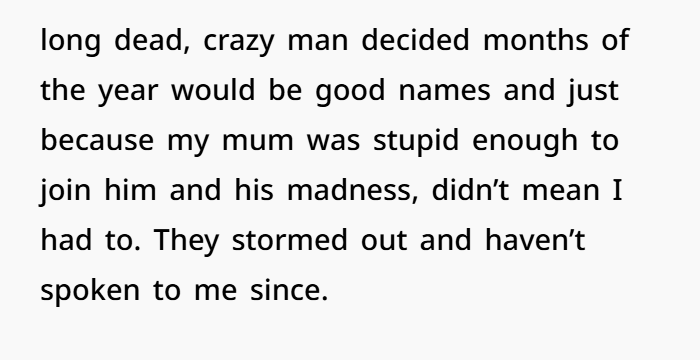
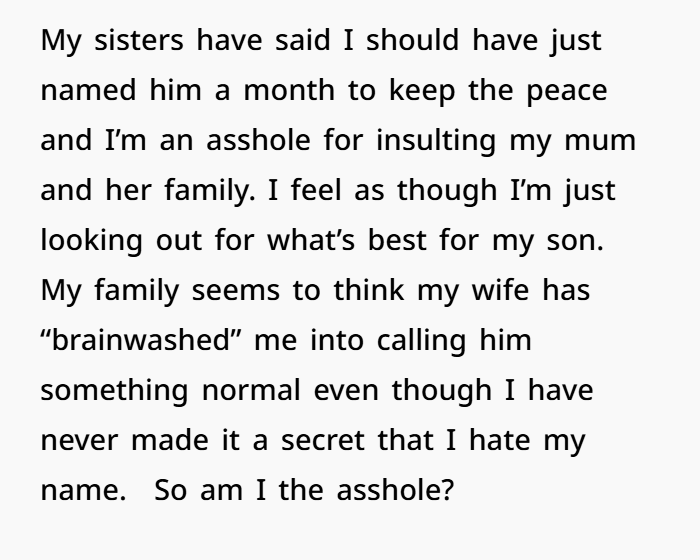
Exploring Family Traditions, Boundaries, and Name-Related Legacies

This is often due to the fact that naming strongly carries some form of continuity in regards to how things were done (or, how we want things to be done) in the past [8, 9]. While this can lead to traditions in families, when families feel pressure to live by the tradition – especially when it causes someone harm – it may also lead to tension. This is not only because of the word; research tells us that names play a much larger role in the way a person feels about who they are, how they identify, and how they relate to other people. Unusual names — think a month or two or some other Darth Vader-like thematic choice — quickly become a source of mockery or constant mispronunciation, forcing a child to explain their name over and over again. This, it would seem, can impact a kid’s self-image and confidence (according to this book, The Narcissism Epidemic, 2009, by Jean M. Twenge & W. Keith Campbell).
The issue here is that individual rights are getting in the way of family values — and in OP’s case, it’s cutting what has become a cultural tradition far deeper. His parents’ appreciation of the tradition reflects their connection to their heritage, but for OP: the tradition represents “an oppressive relic of unnecessary suffering” based on how he experienced it. This kind of disagreement happens when traditions transition from being things we do voluntarily to something that feels like an unwritten obligation. Since family systems theory recognizes that shedding outdated expectations creates frictio — particularly when an individual sees that paradigm shift as a rejection of their collective identity — the struggle of moving on, and of having a new identity that differs from the past, is something that families can understand, Davidson points out.
Legal and practical considerations are also relevant here. After a birth certificate gets signed, the only way to change a child’s name is to take them to court, which is exactly why OP and his wife made a point of making the decision and leaving the family out of it, technically, until they had at least decided. They clearly realize that they might face some flak for this choice and need to protect their child from family bullying.

This idea that OP’s wife’s behaviour “brainwashed” OP is typical of a tradition marital disputes narrative, where a partner is painted as the cause of deviation from tradition. But OP dislikes his name for a long time, which indicates he probably made that choice based on personal experience and the stigma attached to the name itself.
In other hundreds of similar family disputes such as, though of course it is better when peace can be maintained, compromise is not a realistic or healthy option in every case. For a compromise that still protects the values OP and his wife want it can look like a month name as a middle name—that way both parties are happy, but at what cost?
People sided with the new dad: “I don’t see why you should be bullied into something you don’t want”

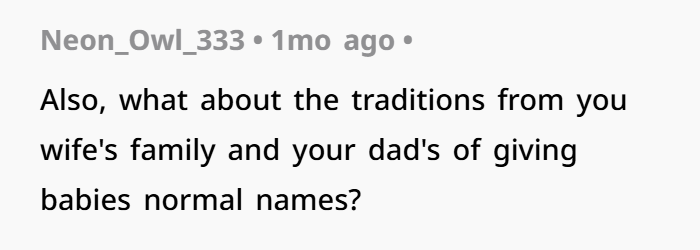


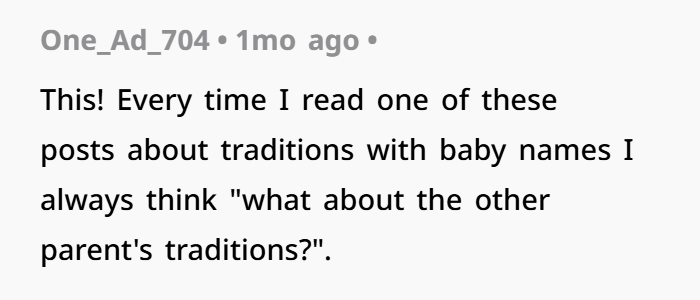
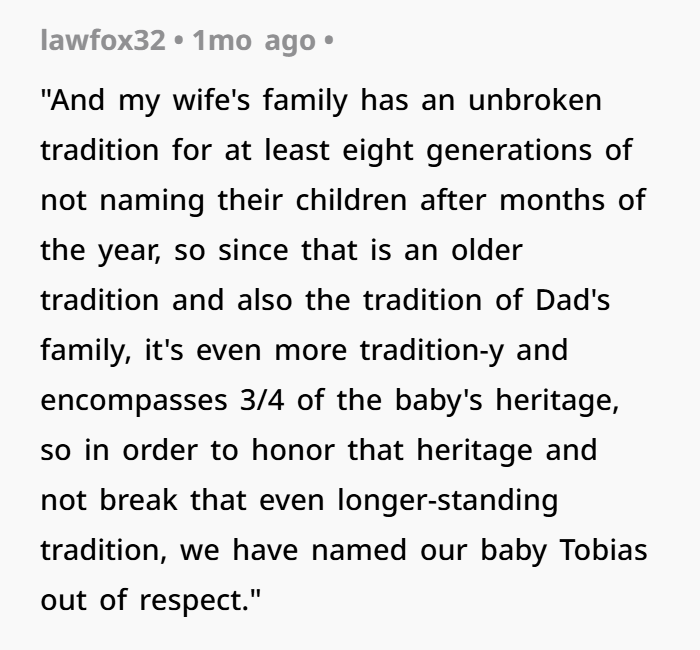


OP is NTA for putting his well-being and the well-being of his child before a tradition that has made him suffer. His delivery could have been softer, but he wants to stop a cycle that he believes is doing more harm than good. Family traditions are important but not at the cost of an individual autonomy or happiness. While there is a sense of family pressure that comes through, even OP himself admits his son will no longer be a Tobias for what is best for the child.

